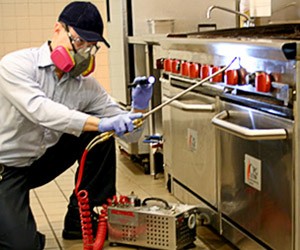 Flies can be a big nuisance not only in your home but in your business as well. Flies are nothing new to us humans. We have been struggling with them since ages. However, people generally ignore them in daily lives. This is probably their biggest mistake which can turn into a full-fledged infestation.
Flies can be a big nuisance not only in your home but in your business as well. Flies are nothing new to us humans. We have been struggling with them since ages. However, people generally ignore them in daily lives. This is probably their biggest mistake which can turn into a full-fledged infestation.

Pestex.ca team inspects to identify, analyze and remove your specific pest issues. We offer comprehensive pest control and removal services for commercial and residential clients in Hamilton, Niagara & Haldimand and the surrounding areas.